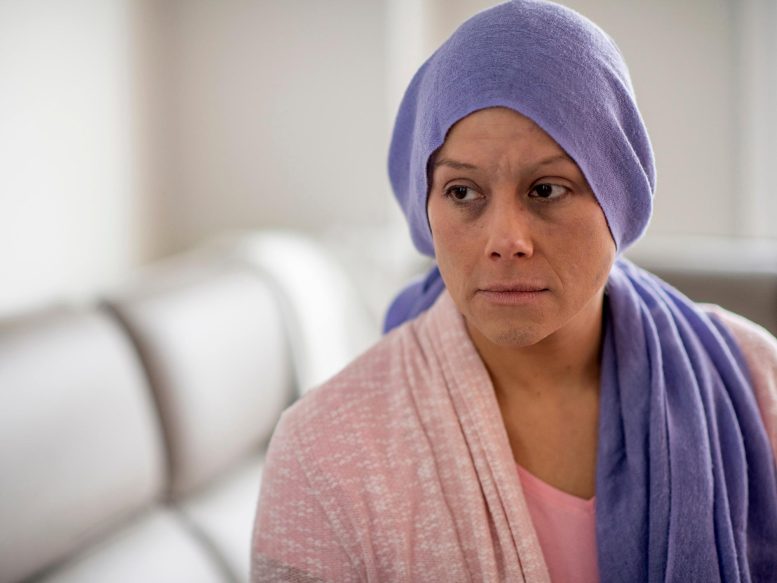
Researchers found that COVID-19 lockdowns resulted in substantial delays for cancer surgeries, potentially leading to increased cancer mortality.
One in seven cancer patients around the world have missed out on potentially life-saving operations during COVID-19 lockdowns, a new study reveals.
Planned cancer surgery was affected by lockdowns regardless of the local COVID-19 rates at that time, with patients in lower-income countries at highest risk of missing their surgery.
Whilst lockdowns have been essential in protecting the general public from spreading infection, they have had a collateral impact on care for other patients and health conditions. In one of the first studies that have measured these effects directly, researchers showed that lockdowns led to significant delays to cancer surgery and potentially more cancer deaths. These could have been prevented if operations had gone ahead on time.
Researchers are calling for major global reorganization during the recovery from the pandemic to provide protected elective surgical pathways and critical care beds that will allow surgery to continue safely, as well as investment in ‘surge’ capacity for future public health emergencies.
They believe that ‘ring-fenced’ intensive care beds would support patients with other health conditions and those with advanced disease (who are at the highest risk from delays) to undergo timely surgery. In parallel, long-term investment in staffing and infrastructure for emergency care would mitigate against disruption of elective services.
Led by experts at the University of Birmingham, almost 5,000 surgeons and anesthetists from around the world worked together as part of the NIHR-funded COVIDSurg Collaborative to analyze data from the 15 most common solid cancer types in 20,000 patients across 466 hospitals in 61 countries. The team today published its findings in The Lancet Oncology.
The researchers compared cancellations and delays before cancer surgery during lockdowns to those during times with light restrictions only. During full lockdowns, one in seven patients (15%) did not receive their planned operation after a median of 5.3 months from diagnosis – all with a COVID-19 related reason for non-operation. However, during light restriction periods, the non-operation rate was very low (0.6%).
Patients awaiting surgery for more than six weeks during full lockdown were significantly less likely to have their planned cancer surgery. Frail patients, those with advanced cancer, and those waiting for surgery in lower-middle-income countries were all less likely to have the cancer operation they urgently needed.
Co-lead author Mr. James Glasbey, from the University of Birmingham, commented: “Our research reveals the collateral impact of lockdowns on patients awaiting cancer surgery during the pandemic. Whilst lockdowns are critical to saving lives and reducing the spread of the virus, ensuring capacity for safe elective cancer surgery should be part of every country’s plan to ensure continued health across the whole population.”
“In order to prevent further harm during future lockdowns, we must make the systems around elective surgery more resilient – protecting elective surgery beds and operating theatre space, and properly resourcing ‘surge’ capacity for periods of high demand on the hospital, whether that is COVID, the flu or other public health emergencies.”
Co-lead author Mr. Aneel Bhangu, from the University of Birmingham, added: “The most vulnerable patients to lockdown effects were those in lower-income countries, where capacity issues that were present before the pandemic were worsened during lockdown restrictions. Patients in these environments were at highest risk of cancellation, despite being younger and having fewer co-morbidities.”
“Whilst we only followed patients that underwent a delay for a short period of time, evidence from other research suggests that these patients may be at higher risk of recurrence. To help mitigate against this, surgeons and cancer doctors should consider closer follow-up for patients that were subject to delays before surgery.”
Researchers analyzed data from adult patients suffering from cancer types including colorectal, oesophageal, gastric, head and neck, thoracic, liver, pancreatic, prostate, bladder, renal, gynecological, breast, soft-tissue sarcoma, bony sarcoma, and intracranial malignancies.
The team believes that this data can help inform governments when making decisions about whether to prolong or reduce restrictions.
Country-level lockdowns have a direct impact on hospital procedures and planning, as health systems change to reflect stringent government policies restricting movement. They found that full and moderate lockdowns independently increased the likelihood of non-operation after adjustment for local COVID-19 case notification rates.
Professor Lucy Chappell, CEO of the National Institute for Health Research and Chief Scientific Adviser (CSA) for the Department of Health and Social Care, said: “We welcome this latest in a series of high-quality, high-impact research outputs from the NIHR-funded COVIDSurg Collaborative. We are proud of how our Global Health Research Units and Groups responded swiftly and adapted to tackle the impacts of the global COVID-19 pandemic. These findings will help build the evidence base for how surgical services can ‘build back better’ and working with the World Health Organization and national coordinating bodies including the Royal College of Surgeons, develop guidance for global surgery.”
Reference: “Effect of COVID-19 pandemic lockdowns on planned cancer surgery for 15 tumour types in 61 countries: an international, prospective, cohort study” by COVIDSurg Collaborative, 5 October 2021, The Lancet Oncology.
DOI: 10.1016/S1470-2045(21)00493-9








Be the first to comment on "One in Seven Cancer Patients Missed Out on Potentially Life-Saving Operations During COVID Lockdowns"